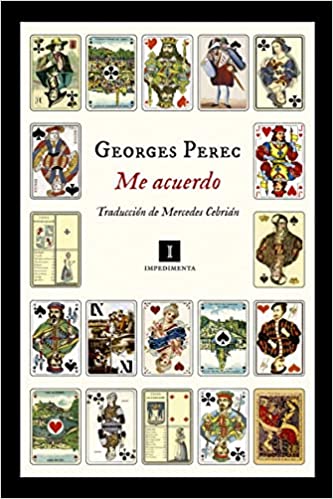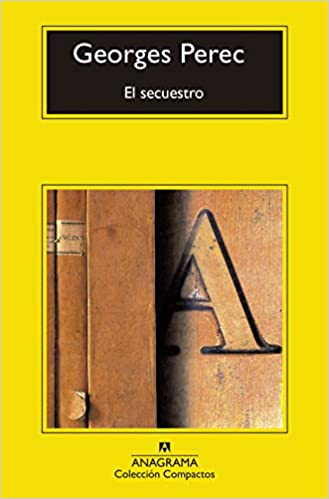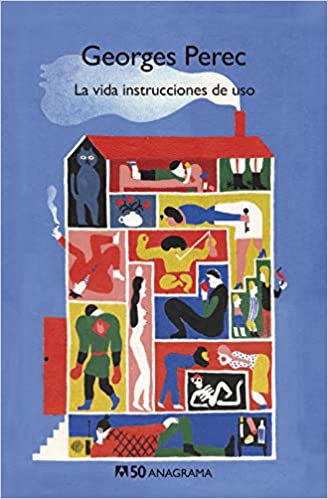French literature enjoys a rich and varied narrative scene with authors who excel in avant-garde proposals such as they are, each in their own way, Houellebecq o foenkinos; or the most internationally best-selling noir with Fred Vargas o The master. All of these great storytellers and many others enjoy the heritage of a Georges Perec that in his short existence he showed signs of an overflowing capacity in that goal of his experimentation.
Exponent of bewilderment and estrangement, of the plot squeezed towards the narrative synthesis as alchemy where the characters distill their soul. A prodigious author in all those facets where language takes on another dimension, be it prose or verse, article or essay. That is the Perec that appears to us as polyphacetic in any of his books.
Brilliant in the lyrics and perhaps obscured in his soul by that recent sinister legacy of a Jewish extermination that peppered him in childhood with the loss of his parents. The point is that literature once again as a placebo in the most personal or as a sublimation in the creative facet was deployed in a work loaded with that ultimate meaning and that transcendent residue of good literature.
Top 3 recommended novels by Georges Perec
I remember
To remember is to quote oneself even at the risk of not having made the decisions that at that other moment loomed on the horizon. That is why the beginning of the story with which we view events offers sincerity, rawness, melancholy, confession. With "I remember" we expose to others other idealized days in which things happened and passed strangely, always in reverse, with their point of hilarity, lyricism and confusion. Just the other focus necessary to understand yesterday or even the most remote era in recent history.
"I remember" has become, over the years, a journey into the collective memory of a country. This inventory of memories, made up of 480 entries that always begin with the words that give the book its title, has become one of the icons of memorial literature of all time. Memories of childhood and youth of one of the best writers of the XNUMXth century through which actors, writers and politicians parade, but also metro stations, boulevards or cinemas of a Paris that no longer exists but is essential to understand the current panorama of European culture. In a new translation by Mercedes Cebrián, one of Georges Perec's legendary works arrives.
Kidnapping
At least the old tales got off to a good start, but this one wasn't even that. From the beginning, a mysterious curse looms inexorably over the characters, and as the story unfolds, its omnipresence puzzles the reader himself.
When Tonio Vocel disappears, victim of a kidnapping, detained, fled, suppressed? The police, unable to correctly decipher the numerous clues that are presented to him, do nothing more than hit the ground running. Tonio's friends take action on the matter, but they too, no matter how close to the truth, will fall prey to the elusive murderer. However, humor continues to reign in the book.
The reader also has the opportunity to test his ingenuity, since the solution, at once elusive and obvious, carefully hidden and yet maliciously simple, never revealed but always exposed, is before his eyes. Will he even know how to see her? Will he manage to find the author of this chaos?
Life instructions for use
Any product with its instructions that determine the use and disposal as a paradigm, deceives us. Nothing is to be thrown away in a single cycle except life. So you better have some good instructions for when life goes wrong or threatens ruin ...
With the pleasure of a collector, Perec showed us that literature is also a game and that behind the curtain of everyday life is the poetry of the anodyne. Behind the façade of a simple Parisian building he found an archive of stories. Narrating is also learning to look, to capture the life stories that make up this monumental puzzle which we still call reality.
I came to this book at a time when literature threatened to become an overly melancholic world. I found in him a stroke of life. I fell in love with Bartlebooth and his crazy project, behind which beats a great intuition: that beauty is sometimes useless and therefore more beautiful. I went through the thousand and one stories that are told here, wrapped up in the same amazement with which I imagine the Renaissance must have explored their cabinets of curiosities. And I knew that literature could be something else: a very serious game that reflects our most mischievous smile.



